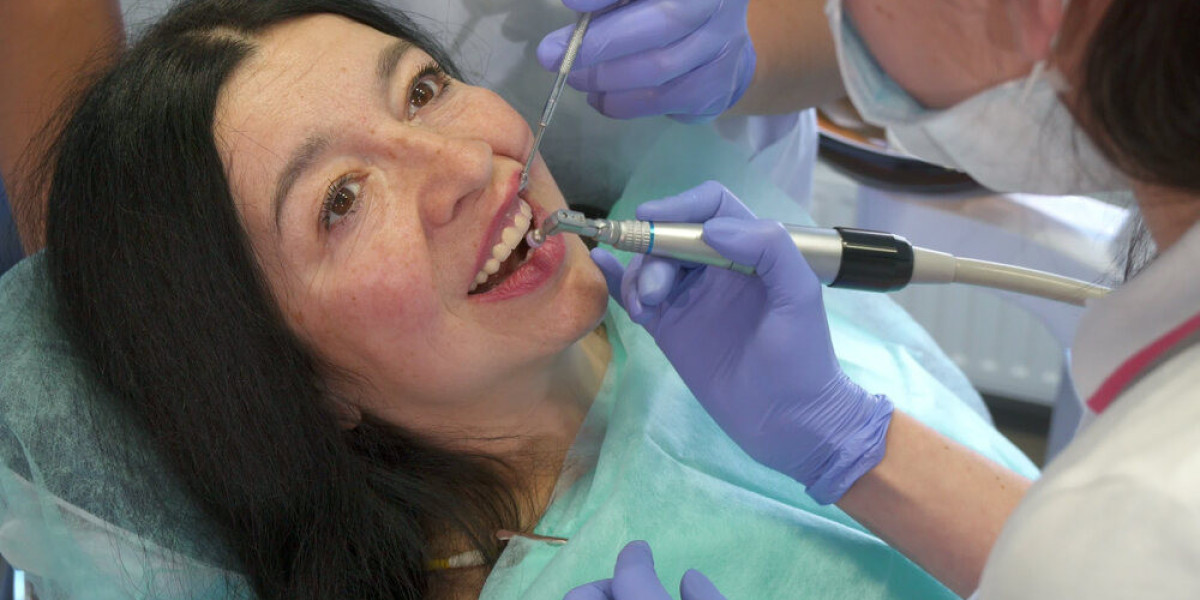It is a fact that maintaining healthy gums is pivotal for the purpose of dental health. Ignoring or overlooking the health of your gums can have negative consequences. But gum health has an essential role to play in maintaining strong foundation of your teeth and for promoting your individual well-being. The most effective and efficient treatment for gum health is root planing. In this blog, we will evaluate what entails root planing and the massive benefits that root planing provides for gum health.
What is root planing?
From a dental perspective, Tooth scaling & root planning are one of the most common dental procedures for performing tartar buildup and removing plaque. This helps to prevent tooth decay along with saving the gums from potential damage. These procedures are usually non-surgical and are done for preventing the requirement for many serious procedures such as performing periodontal surgery and root canal.
Modern techniques in root planing
There has been a consistent evolution in dentistry, specifically for root planning services. Some of the modern techniques that are now getting common in root planing include:
- Local antibiotic treatment: A dentist can introduce antibiotics to the gum pockets after the process of root planing. This helps to enhance healing and fighting off potential growth in bacteria.
- Ultrasonic instruments: The modern root planing devices use vibrations for breaking down plaque and tartar while using water to flush out bacteria.
- Root planing and laser-assisted scaling: Lasers provide an invasive approach as they reduce recovery time and discomfort for the patient.
Regular maintenance procedure
Once you have taken the step to undergo root planing and scaling, you can follow it up with the process of regular maintenance. This involves regular dental check-ups for ensuring the sustainability and health of the gums and eliminating potential dental challenges.
Expected results of root planing
Many individuals can reap benefits through regular root planing and tooth scaling treatment. It helps fighting tartar as well as plaque buildup. This results in reduction of gum disease. Meanwhile, root planing and scaling are also essential for patients that suffer from the risk of periodontal pockets. These procedures are highly beneficial for minor cases of tooth decay or damage as the teeth can get protection. Usually, root planing is done in conjunction with other dental treatments including dental filling and teeth whitening.
Depending primarily on gum disease severity along with presence of calcified deposits, such procedures are done in every session that lasts for almost an hour. Even though the procedure is done through the use of local anesthesia, patients expect mild levels of discomfort after the process. Minor bleeding and swelling is also possible.
How does root planing work?
Tooth scaling & root planning are a non-surgical dental process done under local anesthesia. It mainly depends on the condition severity as well as the anxiety level of the patient. The procedure usually starts through the removal of a tartar and plaque buildup on the surface of the teeth or a dental scaler. The hand piece makes use of ultrasonic waves for breaking down the deposits. The device can also spray small deposits of water for softening and removal of the plaque.
Root planing is done to make the surface of the roots smooth as well as to speed up the process of healing. This can help in possible reduction of bacterial growth as it can provide serious dental issues in the future. In some cases it can involve deep periodontal pockets. However, the periodontist has the option to flip the gums as well as clean the area thoroughly for ensuring there is no bacteria.
Potential complications and risks of root planing
It is very rare to have serious complications from tooth scaling & root planning. This is mainly because they are usually non-surgical and involves using general anesthesia. One of the biggest consequences of root planing is swelling. The gums are sensitive and can cause bruising. However, the swelling slows down in a few days. Bleeding is also visible. However, it will not sustain for many hours and it must be minor. If there is severity of gum disease, it takes more appointments before the shrinking or receding of the gum. For others, this is highly frustrating and can result in stopping the treatment altogether.
Benefits of root planing
There are several benefits of root planning treatment. The most important benefits of root planing are as follows:
Reduction in gum disease
Gum disease is a dental condition that can get worse without treatment. If it occurs, you will suffer from an extensive range of unpleasant effects. This includes painful infections and gum recession due to bone deterioration and tooth loss.
Improvement in oral health
Advancement in gum disease has a wide variety of health conditions. This includes heart diseases, high blood pressure, stroke and diabetes. As a result of reducing the risk of gum disease with root planing and scaling, you can reduce the potential of developing other health conditions.
Improvement in smile
Everyone wants to improve the overall appearance of their smile. However, if you have gum disease, your gums may look sore, red and swollen. When you have moderate or severe gum disease, the gums may pull away from your teeth. As a result, root planing can help to improve the appearance of your smile as it can remove superficial staining along with plaque and tartar and get gum inflammation under control.
Conclusion
It is evident that root planing is essential for fighting against gum disease. By solving the root causes of infection and gum inflammation, this process offers various important benefits for dental health. If you suffer from gum disease and have to undergo root planing, don’t worry in consulting with a dental professional. Investing in long-term health of a gums is beneficial for your smile.








